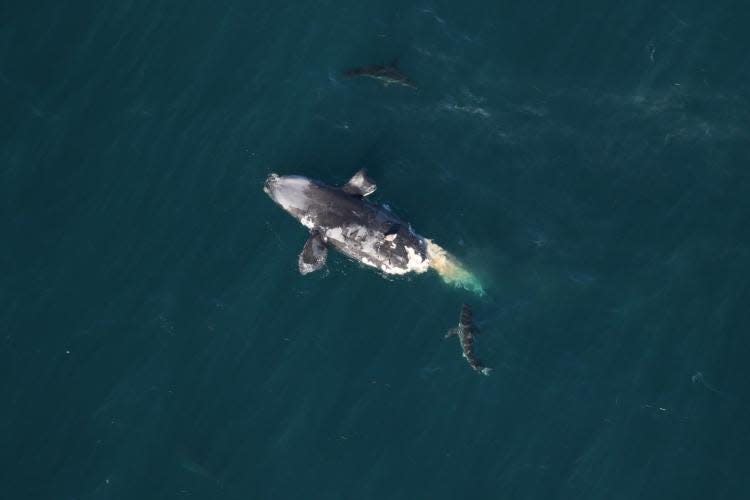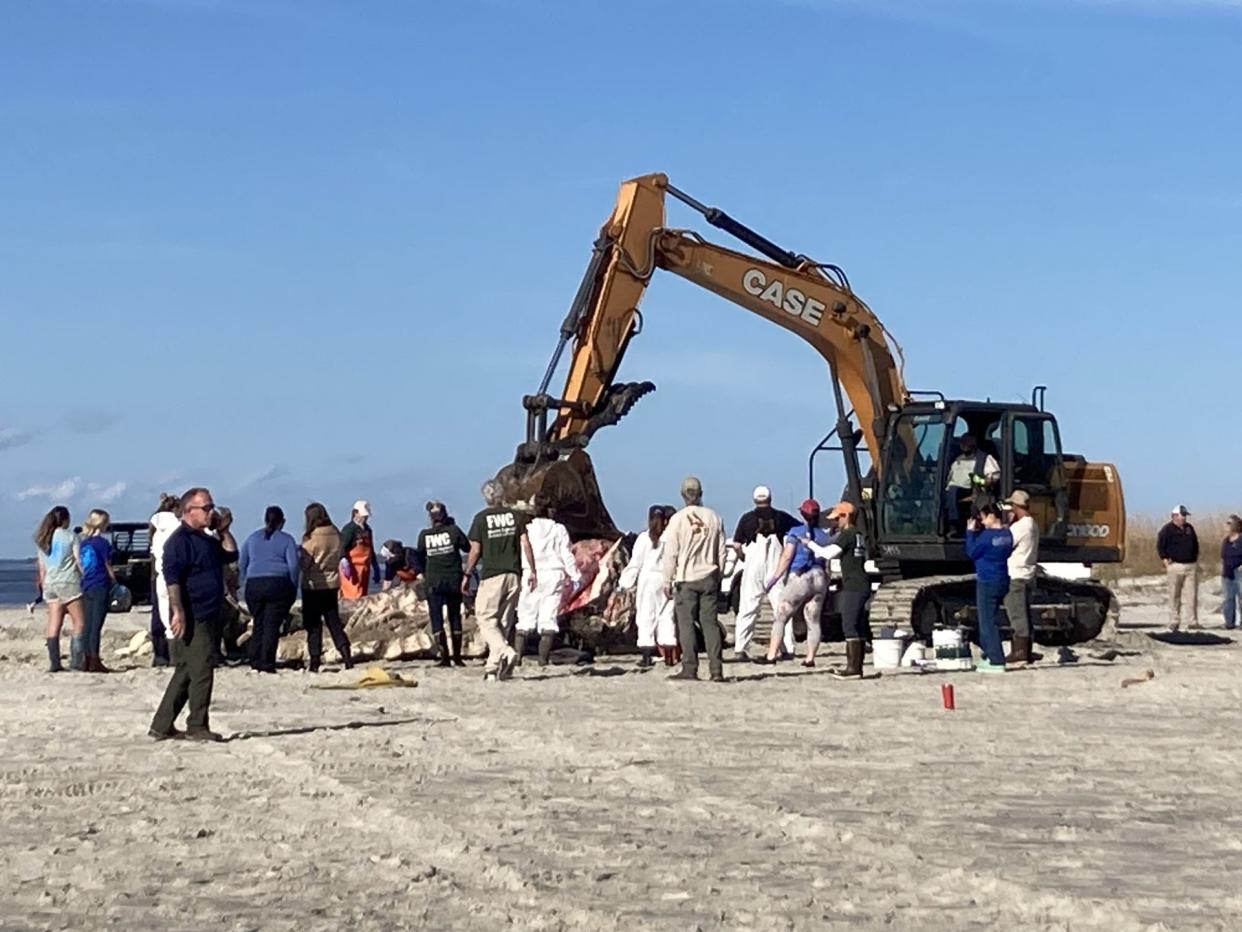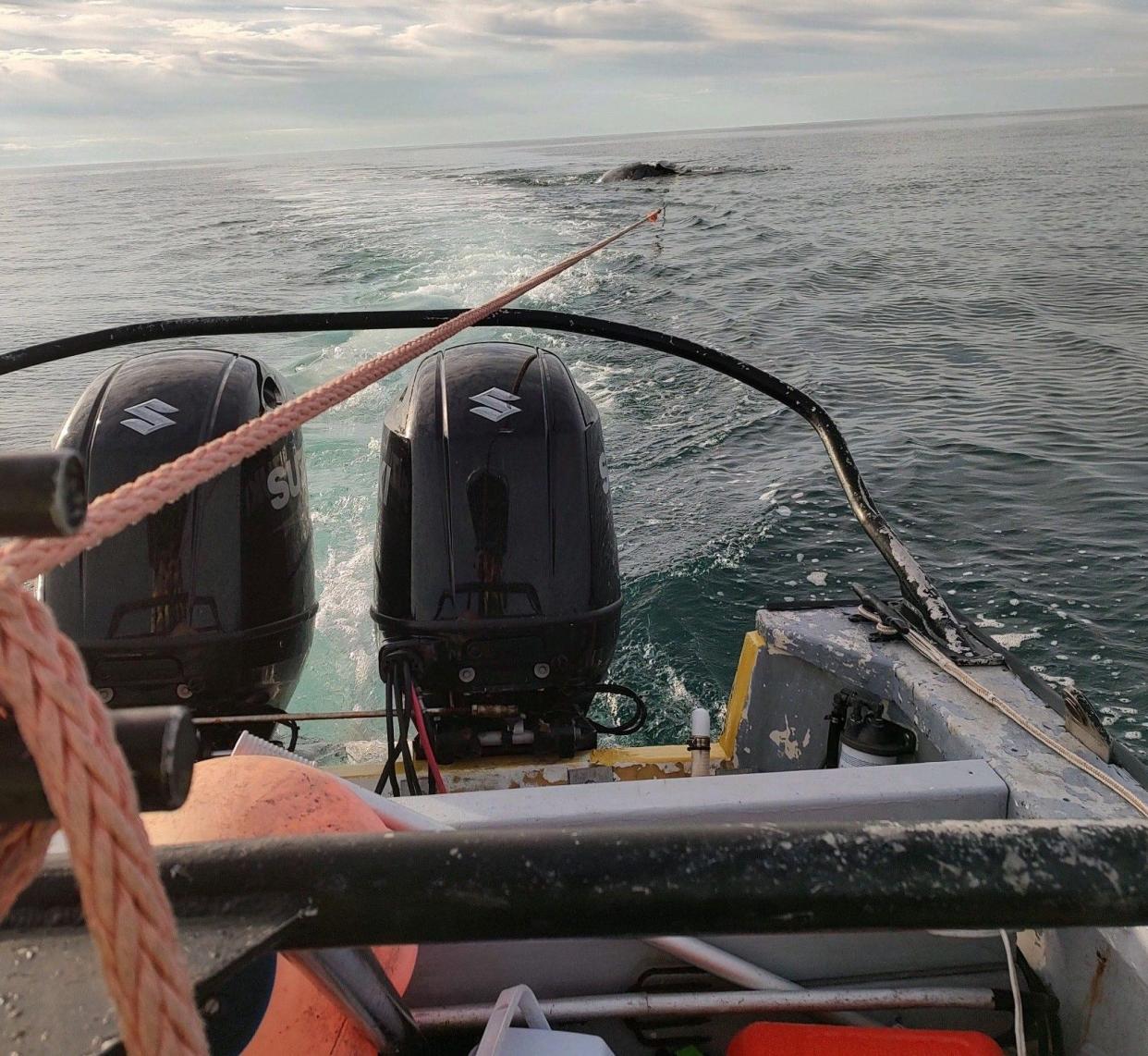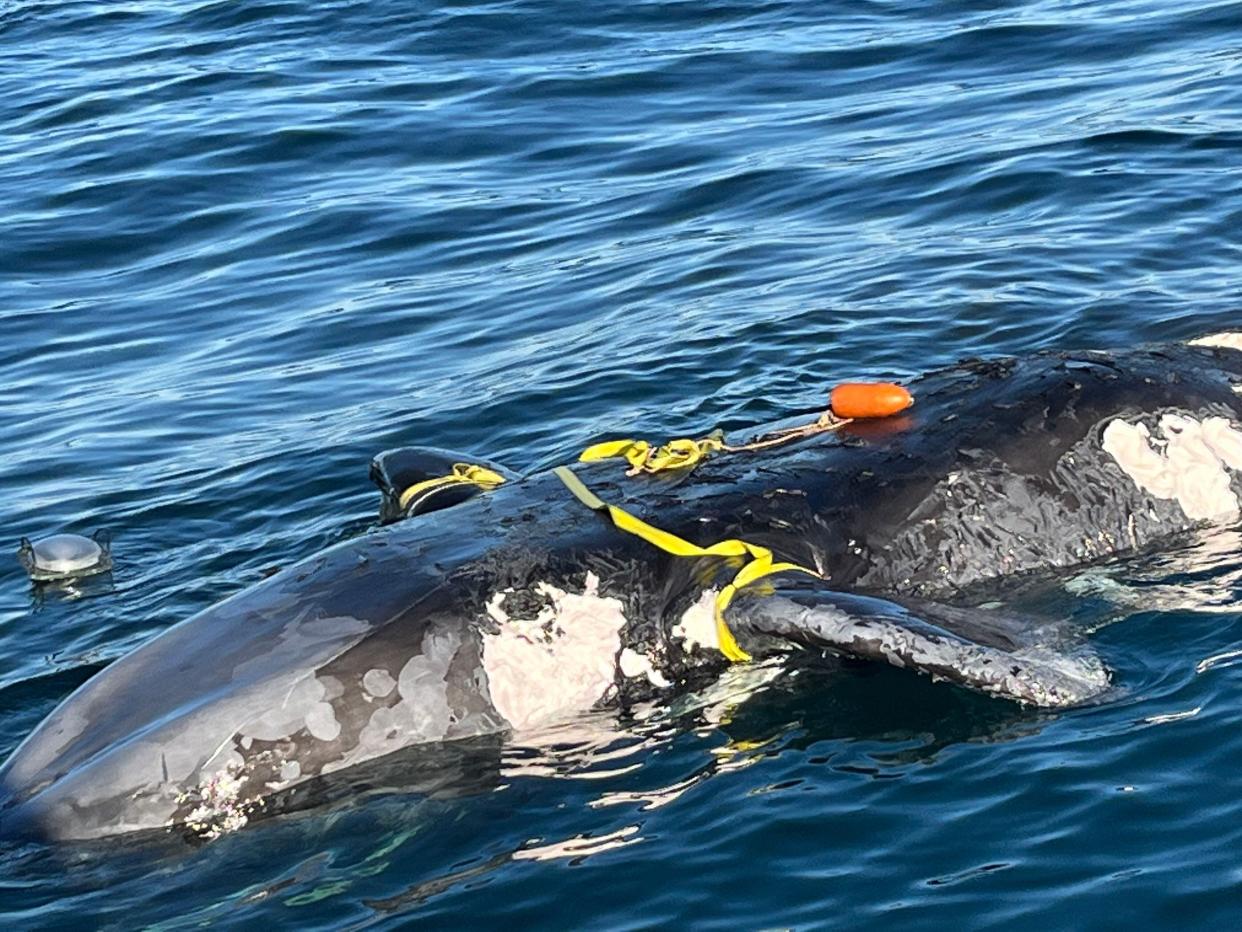Young North Atlantic right whale found dead off Tybee Island

A year-old North Atlantic right whale was found dead Wednesday off the coast of Georgia, according to federal officials.
The young female, known as Pilgrim, was discovered floating about 20 miles off the coast of Tybee Island, the National Oceanic and Atmospheric Agency Fisheries division said Thursday.
An aerial survey team from the Clearwater Marine Aquarium Research Institute searched and found the carcass, which had been “heavily scavenged” by sharks, NOAA reported.
Officials from the Georgia Department of Natural Resources identified the whale using satellite data, photos and samples.
DNR and the Sea Tow service were able to bring the whale ashore to Tybee Island, where specialists carried out an examination. The remains were expected to be buried Thursday evening, officials said.
"Samples (were) collected to attempt to determine the cause of illness and death," NOAA reported. "However, given the status of the carcass and the extensive scavenging, interpretation and results may be challenging."
In all, five North Atlantic right whales have been found dead, seriously injured or classified as missing since mid-December.
The latest discovery came just days after a dead right whale was found off the Massachusetts coast, near Martha’s Vineyard.
The two deaths bring the total of North Atlantic right whale fatalities to 38 since 2017, a spate that prompted NOAA to declare an official "Unusual Mortality Event."
During the current birthing season, which runs from November through March, 17 calves have been observed, including the two that died and a third that was struck by a vessel and is believed to be seriously injured, NOAA said.
'Right whale graveyard' off East Coast
As incidents mount, NOAA continues to contemplate an expansion of seasonal offshore speed restrictions for vessels aimed at protecting right North Atlantic whales in their annual birthing area along the Southeast coast.
Current federal regulations set a speed limit of 10 knots (11.5 mph) from mid-November to mid-June for vessels at least 65 feet long in a protective zone stretching from Brunswick to Wilmington, North Carolina, where right whales gather to give birth in warm Atlantic waters.
NOAA has proposed applying the regulations to craft 35 feet or longer.
According to NOAA statistics, 40% of right whale strikes involve boats in the 35 to 65-foot range.

Danger zone: Speeding vessels off Georgia coast imperiling whales, report finds
“Blunt force trauma, lacerations and death are likely outcomes of a collision with a vessel,” said Dr. Sarah Sharp, animal rescue veterinarian at the International Fund for Animal Welfare. “Vessels of all sizes are at risk of harming the critically endangered right whale.”
Two international research studies determined that limiting speeds to 10 knots led to an 80-90% reduction in whale deaths caused by vessel collisions, NOAA noted in supporting data for its proposed changes.
Advocates responded to the latest deaths by again calling on federal officials to approve and institute the expansion of seasonal speed restrictions.
“The death of two juvenile North Atlantic whales within three weeks of each other is heartbreaking and preventable," said Kathleen Collins, senior marine campaign manager at the International Fund for Animal Welfare. "The right whale graveyard off our Eastern Seaboard continues to grow and inaction from the administration is digging the graves. While we do not know the cause of this particular death, we know human-related activity is the main threat to the survival of this species.”
Vessel strikes and entanglement in fishing nets are the leading causes of harm to right whales.
“Let’s call this what it is: gross negligence by our government leaders," said said Gib Brogan, campaign director at Oceana in the United States. "Another dead North Atlantic right whale on our shores – this time off Georgia – is an outrage. ... Our government has the responsibility to solve the top threats to North Atlantic right whales: boat strikes and entanglement in fishing gear."
U.S. Rep. Buddy Carter, a Republican whose district includes all of Georgia’s 100-mile coast, is among the strongest opponents of the rule changes. He introduced a bill last summer that would prohibit NOAA from spending federal dollars to implement the rule change until its parent agency, the Department of Commerce, develops and deploys new technology to monitor Atlantic waters for right whales.
“We care about the whales too,” Carter said at the time. “We want to protect them, but not at the expense of destroying our commercial fishing and slowing down our port traffic to the point where it has an enormous impact on our economy.”
The bill remains in committee.

Any premature loss threatens the prospective recovery of right whales, which have been protected for a half-century under the Endangered Species Act and the Marine Mammal Protection Act.
The Atlantic teemed with as many as 21,000 right whales before their population was decimated by commercial whaling in the late 19th century, driving their numbers down to an estimated 100.
There are believed to be about 340 remaining, including fewer than 70 reproducing females.
Just a dozen calves were identified during the 2022-2023 season, but not all of them survived.
John Deem covers climate change and the environment in coastal Georgia. He can be reached at jdeem@gannett.com.

This article originally appeared on Savannah Morning News: Dead right whale 'heavily scavenged' by sharks found off Tybee Island
